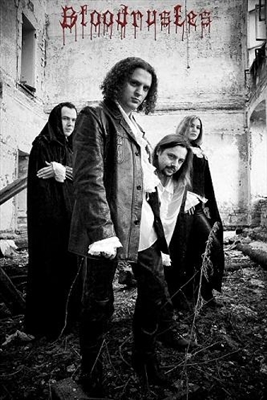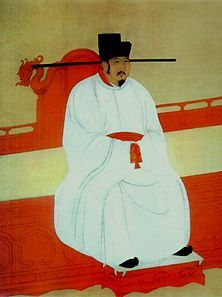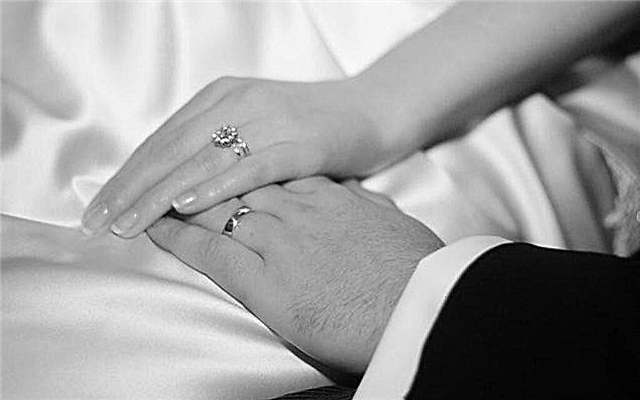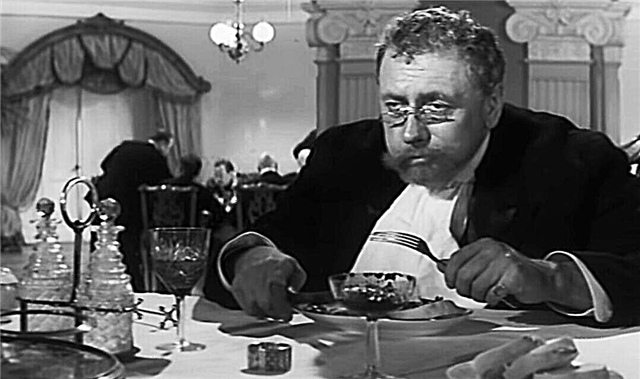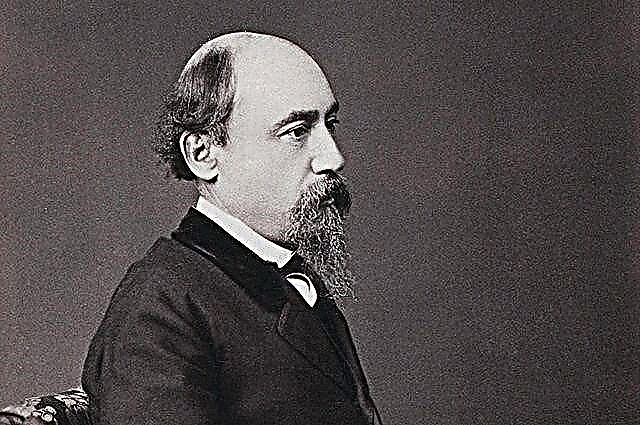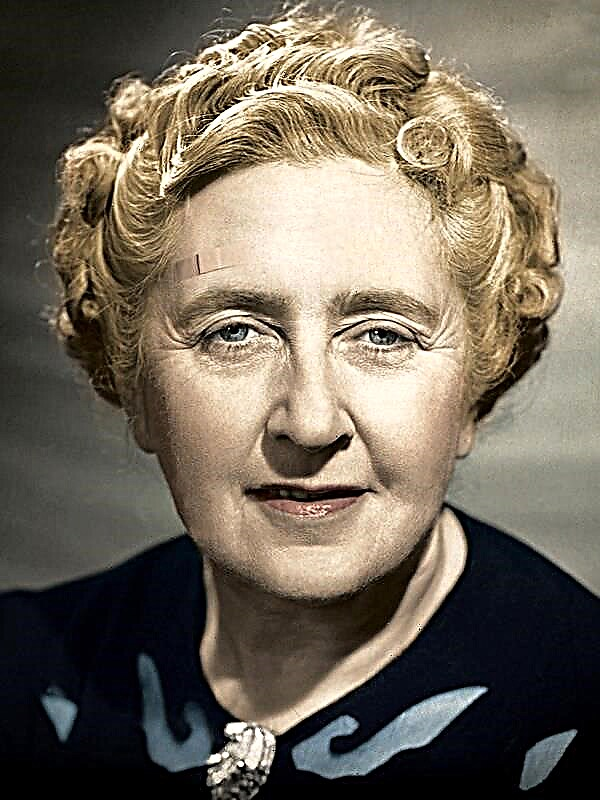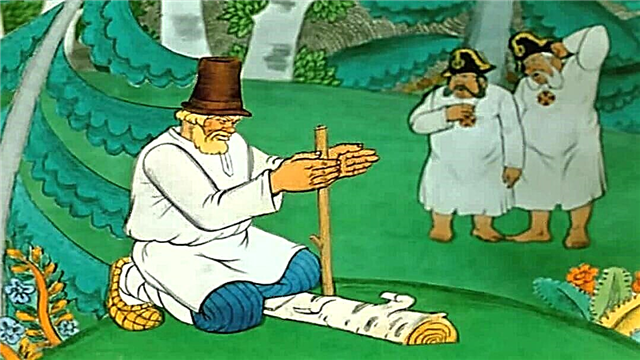The Trojan War was started by the gods in order to end the time of heroes and the present, human, iron age. Who did not die at the walls of Troy, he had to die on the way back.
Most of the surviving Greek leaders sailed to their homeland, as they sailed to Troy - a general fleet through the Aegean Sea. When they were halfway, the sea god Poseidon struck a storm, the ships were scattered, people drowned in the waves and crashed onto rocks. Only the chosen ones were destined to be saved. But even that was not easy. Perhaps only the old wise Nestor managed to calmly reach his kingdom in the city of Pylos. The high king Agamemnon defeated the storm, but only then to die an even more terrible death - in his native Argos, his own wife and her avenger-lover killed him; the poet Aeschylus will write about this later. Menelaus, with Elena returned to him, blown far away to Egypt, and for a very long time he reached his Sparta. But the longest and hardest course was the path of the cunning king Odysseus, whom the sea had been carrying around the world for ten years. Homer composed his second poem: “Muse, tell me about the experienced husband who, / Wandering long since the day how Saint Ilion destroyed them, / He visited many people of the city and saw customs, / He suffered a lot of grief on the seas , taking care of salvation ... "
The Iliad is a heroic poem; its action takes place on the battlefield and in the military camp. “Odyssey” is a fabulous and everyday poem, its action takes place, on the one hand, in the magical lands of giants and monsters where Odysseus roamed, on the other hand, in his small kingdom on the island of Ithaca and its environs, where his wife Penelope and his son Telemachus. Just as in the Iliad, only one episode, “Achilles' wrath” was chosen for the story, so in “The Odyssey” - only the very end of his wanderings, the last two hauls, from the far western edge of the earth to his native Ithaca. About everything that was before, Odysseus tells at a feast in the middle of the poem, and tells very concisely: for all these fabulous adventures in the poem, there are fifty of three hundred pages. In Odyssey, a fairy tale sets off everyday life, and not vice versa, although readers, both ancient and modern, were more willing to reread and recall the fairy tale.
In the Trojan War, Odysseus did a lot for the Greeks - especially where it needed not mind, but the mind. It was he who guessed to tie Elena’s suitors together with an oath to help her chosen one against any offender, and without this the army would never have gone on a campaign. It was he who attracted young Achilles to the campaign, and without this victory would have been impossible. It was he, when at the beginning of the Iliad the Greek army, after a general gathering, almost rushed from under Troy to the return trip, managed to stop it. It was he who persuaded Achilles, when he quarreled with Agamemnon, to return to the battle. When, after the death of Achilles, the best warrior of the Greek camp was to receive the armor of the slain, they were received by Odysseus, not Ajax. When Troy failed to take the siege, it was Odysseus who came up with the idea to build a wooden horse, in which the most brave Greek leaders hid and penetrated into Troy in this way - and he was one of them. The goddess Athena, the patroness of the Greeks, most of them loved Odysseus and helped him at every turn. But the god Poseidon hated him - we will soon find out why - and it was Poseidon who, with his storms, for ten years prevented him from reaching his homeland. Ten years under Troy, ten years in wanderings, and only in the twentieth year of his trials does the action of the Odyssey begin.
It begins, as in the Iliad, by Zeus Will. The gods hold advice, and Athena stands before Zeus for Odysseus. He is held captive by the nymph Calypso, who is in love with him, on an island in the very middle of the wide sea, and languishes, in vain wanting to "see even smoke rising from his native shores in the distance." And in his kingdom, on the island of Ithaca, everyone already considers him dead, and the surrounding nobles demand that Queen Penelope choose for herself a new husband from them, and the island - a new king. There are more than a hundred of them, they live in the Odyssey Palace, feast wildly and drink, ruining the Odyssey farm, and have fun with the Odyssey slaves. Penelope tried to deceive them: she said that she vowed to announce her decision no earlier than weaving a shroud for old Laertes, Odyssey’s father, who was about to die. During the day, she wove in plain sight to everyone, and at night secretly loosened the woven. But the maidservants betrayed her cunning, and it became increasingly difficult for her to resist the insistence of the suitors. With her is her son Telemachus, whom Odysseus left as a baby; but he is young, and they are not considered.
And an unknown stranger comes to Telemachus, calls himself an old friend of Odysseus and gives him advice: “Equip the ship, go around the surrounding lands, gather news about the missing Odyssey; if you hear that he is alive, you will tell the suitors to wait another year; if you hear that you’re dead, you’ll say that you will commemorate and persuade your mother to marry. ” He advised and disappeared - for Athena herself appeared in his image. So Telemachus did. The grooms resisted, but Telemachus managed to leave and board the ship unnoticed - for even the same Athena helped him in this.
Telemachus is sailing to the mainland - first to Pylos to the decrepit Nestor, then to Sparta to the newly returned Menelaus and Elena. The talkative Nestor tells how the heroes sailed from under Troy and drowned in a storm, how Agamemnon died later in Argos, and how his son Orestes avenged the murderer; but he does not know anything about the fate of Odysseus. The hospitable Menelaus tells how he, Menelaus, lost his way in his wanderings, on the Egyptian coast he tackled the prophetic sea elder, the seal shepherd Proteus, who knew how to turn to a lion, and to a boar, and to a leopard, and to a snake, and to water, and to wood; how he fought with Proteus, and overpowered him, and learned from him the way back; but at the same time he learned that Odysseus was alive and suffering in the midst of the wide sea on the island of the nymph Calypso. Pleased by this news, Telemachus is going to return to Ithaca, but Homer interrupts his story about him and addresses the fate of Odysseus.
Athena's intercession helped: Zeus sends a messenger of the gods Hermes to Calypso: the time has come, it is time to let Odysseus go. The nymph laments: “For that I saved him from the sea, for that I wanted to give him immortality?” - but doesn’t dare to disobey. Odysseus does not have a ship - you need to put together a raft. For four days he works with an ax and a drill, for the fifth - the raft is lowered. For seventeen days he sailed, reigning in the stars, on the eighteenth storm breaks. It was Poseidon, seeing the hero slipping away from him, swept the abyss with four winds, the raft logs scattered like straw. “Ah, why didn’t I die under Troy!” Cried Odysseus. Two goddesses helped Odysseus: the good sea nymph threw him a magic veil, which saved him from drowning, and the faithful Athena took away three winds, leaving the fourth to carry him swimming to the near shore. For two days and two nights he swims without closing his eyes, and on the third wave they throw him on land. Naked, tired, helpless, he burrows himself in a pile of leaves and falls asleep in a dead sleep.
It was a land of blessed feacs, over which the good king Alkina ruled in a high palace: copper walls, golden doors, embroidered fabrics on benches, ripe fruits on branches, eternal summer over the garden. The king had a young daughter, Nausicaa; Athena appeared to her at night and said: “Soon you will be married, and your clothes are not washed; Gather the maidservants, take the chariot, go to the sea, wash the dresses. ” We left, washed, dried, began to play the ball; the ball flew into the sea, the girls cried out loudly, their cry woke Odysseus. He rises from the bushes, scary, covered with dried sea mud, and prays: "Whether you are a nymph or a mortal, help: let me cover nudity, show me the way to people, and may the gods send a good husband to you." He is washed, anointed, dressed, and Nausicaa, admiring, thinks: "Ah, if the gods would give me such a husband." He goes to the city, enters Tsar Alkina, tells him about his misfortune, but does not name himself; touched by Alkina promises that the Theakian ships will take him wherever he asks.
Odysseus sits at the Alkinoev's feast, and the wise blind singer Demodok entertains people feasting with songs. “Sing about the Trojan War!” - asks Odysseus; and Demodok sings about the Odyssey wooden horse and the capture of Troy. Odyssey has tears in his eyes. “Why are you crying? - says Alkina. - For this, the gods send death to the heroes so that the descendants sing their glory. Is it true that someone close to you fell under Troy? ” And then Odysseus opens: “I am Odysseus, the son of Laertes, king of Ithaca, a small, stony, but dear to my heart ...” - and begins the story of my wanderings. There are nine adventures in this story.
The first adventure is at the lotofagi. The storm took the Odyssey ships from under Troy to the far south, where the lotus grows - a magic fruit, having tasted it, a person forgets everything and does not want anything in life except a lotus. Lotofagi treated the lotus of Odyssey satellites, and they forgot about their native Ithaca and refused to sail further. By the strength of them, weeping, they took them aboard the ship and set off on a journey.
The second adventure is in the Cyclops. These were monstrous giants with one eye in the middle of the forehead; they grazed sheep and goats and did not know the wine. Chief among them was Polyphemus, son of the sea Poseidon. Odysseus with a dozen comrades wandered into his empty cave. In the evening Polyphemus came, huge as a mountain, drove a herd into the cave, blocked the exit with a block, asked: "Who are you?" - "Wanderers, Zeus is our guardian, we ask to help us." - “I'm not afraid of Zeus!” - and the cyclops grabbed two, smashed against the wall, gobbled up with bones and snored. In the morning he left with the herd, again filling up the entrance; and then Odysseus came up with a trick. He and his comrades took a cyclopian club, which, like a mast, sharpened, burned over a fire, and hid it; and when the villain came and gobbled up two more comrades, he brought him wine to euthanize. The monster liked the wine. "What's your name?" - he asked. "No one!" - answered Odysseus. “For such a treat, I’ll eat you the last!” - and the hoppy cyclops snored. Then Odysseus and his companions took a club, came up, swung it and stuck it into the only giants of the eye. The blinded cannibal roared, other cyclops escaped: "Who offended you, Polyphemus?" - "No one!" - “Well, if nobody, then there is nothing to make noise” - and they parted. And in order to leave the cave, Odysseus tied his comrades under the belly with cyclops sheep so that he would not feel them, and so, together with the herd, they left the cave in the morning. But, already sailing, Odysseus could not stand and shouted:
“Here is a punishment for the guests against me, Odyssey and Ithaki!” And the cyclops fiercely prayed to his father Poseidon: “Do not let Odysseus swim to Ithaca - and if so, it’ll be soon to sail, alone, on a strange ship!” And God heard his prayer.
The third adventure is on the island of the god of winds Eola. God sent a fair wind to them, and tied the rest in a leather bag and gave Odysseus: "When you swim, let go." But when Ithac was already visible, the tired Odysseus fell asleep, and his companions untied the sack ahead of time; a hurricane rose, they rushed back to Aeolus. “So the gods are against you!” Aeolus said angrily and refused to help the disobedient.
The fourth adventure is with the Lestrigons, wild cannibal giants. They fled to the shore and brought down huge rocks on the Odyssey ships; of the twelve ships eleven died, Odysseus with few comrades escaped in the latter.
The fifth adventure is with the sorceress Kirk, the Queen of the West, who turned all the aliens into animals. She brought the Odyssey messengers wine, honey, cheese and flour with a poisonous potion - and they turned into pigs, and she drove them into the stable. He escaped alone and in horror told this to Odysseus; he took a bow and went to the aid of his comrades, hoping for nothing. But Hermes, the messenger of the gods, gave him the divine plant: the root is black, the flower is white - and the spell was powerless against Odysseus. Threatening with a sword, he forced the sorceress to return the human appearance to his friends and demanded: "Turn us to Ithaca!" “Ask the way from the prophetic Tiresias, the prophet from the prophets,” said the sorceress. “But he died!” - "Ask the dead!" And she told how to do it.
The sixth adventure is the worst: descent into the kingdom of the dead. The entrance to it is at the end of the world, in the land of eternal night. The souls of the dead in it are incorporeal, insensitive and thoughtless, but after drinking the sacrificial blood, they gain speech and reason. On the threshold of the kingdom of the dead, Odysseus killed a black sheep and a black sheep as a sacrifice; the souls of the dead flocked to the smell of blood, but Odysseus drove them away with his sword, until the prophetic Tiresias appeared before him. After drinking blood, he said:
“Your troubles - for insulting Poseidon; your salvation - if you do not offend also the Helios Sun; if you offend - you will return to Ithaca, but alone, on a strange ship, and not soon. Penelope's grooms are tearing your house; but you will master them, and you will have a long kingdom and peaceful old age. " After this, Odysseus allowed to the sacrificial blood and other ghosts. The shadow of his mother told how she died of longing for her son; he wanted to hug her, but under his arms was only empty air. Agamemnon told how he died from his wife: "Be careful, Odysseus, it is dangerous to rely on your wife." Achilles told him:
“It is better for me to be a farm laborer on earth than a king between the dead.” Only Ajax did not say anything, not forgiving that Odysseus, and not he got the armor of Achilles. From a distance I saw Odysseus and the infernal judge Minos, and the ever-executed pride of Tantalus, the sly Sisyphus, the impudent Titius; but then horror seized him, and he hastened away to the white light.
The seventh adventure was the Sirens - predators, seductive singing luring sailors to death. Odysseus outwitted them: he sealed his ears with wax with his companions, and ordered himself to be tied to the mast and not let go, no matter what. So they sailed past, unharmed, and Odysseus also heard the singing, which is sweeter than none.
The eighth adventure was the strait between the monsters Scylla and Charybdis: Scylla - about six heads, each with three rows of teeth, and about twelve paws; Charybdis is about one larynx, but one that pulls the whole ship in one gulp. Odysseus preferred Scylla to Charybdis - and he was right: she grabbed six of his comrades from the ship and ate six of his mouths, but the ship remained intact.
The ninth adventure was the island of the Sun-Helios, where its sacred herds grazed - seven herds of red bulls, seven herds of white rams. Odysseus, remembering the covenant of Tiresias, took a terrible oath with his comrades not to touch them; but nasty winds blew, the ship stood, the companions were starving, and when Odysseus fell asleep, they killed and ate the best bulls. It was scary: the skinned skins moved, and the meat on skewers grunted. The Sun-Helios, who sees everything, hears everything, knows everything, prayed to Zeus: “Punish the offenders, otherwise I’ll go down to the underworld and shine among the dead.” And then, as the winds subsided and the ship sailed from the shore, Zeus picked up a storm, struck with lightning, the ship scattered, the satellites drowned in a whirlpool, and Odysseus alone ran about nine days on a piece of a log across the sea until he threw it onto the shore of Calypso Island.
So Odysseus ends his story.
Tsar Alkina fulfilled the promise: Odysseus boarded the Theakian ship, plunged into an enchanted dream, and woke up on the foggy coast of Ithaca. Here he is met by the patroness of Athena. “The time has come for your cunning,” she says, “lurk, guard the grooms, and wait for your son Telemachus!” She touches him, and he becomes unrecognizable: old, bald, poor, with a staff and a bag. In this form, he goes deep into the island - asking for shelter from the good old swineherd Eumea. He tells Eumeus that he came from Crete, fought under Troy, knew Odysseus, sailed to Egypt, fell into slavery, was with pirates and was barely saved. Eumeus calls him to the hut, puts him to the hearth, treats him, grieves for the missing Odyssey, complains of exuberant suitors, pities Queen Penelope and Tsarevich Telemakh.The next day, Telemachus himself comes back from his wanderings - of course, Athena herself also sent him here. Before him, Athena returns to Odysseus his real appearance, powerful and proud. “Aren't you a god?” - asks Telemachus. “No, I am your father,” Odysseus answers, and they, embracing, cry with happiness.
The end is nearing. Telemachus goes to the city, to the palace; Eumeus and Odysseus wander after him, again in the image of a beggar. At the palace doorstep, the first recognition takes place: the decrepit Odyssey dog, who has not forgotten the owner’s voice for twenty years, raises his ears, crawls to him with all his strength and dies at his feet. Odysseus enters the house, goes around the room, asks alms from the suitors, suffers mockery and beatings. Grooms pit him with another beggar, younger and stronger; Odysseus unexpectedly knocks him over with one blow. Grooms laugh: “Let Zeus send you what you want for it!” - and they don’t know that Odysseus wishes them a quick death. Penelope calls a stranger to her: did he not hear the news of the Odyssey? “I heard,” says Odysseus, “he is in the near future and will arrive soon.” Penelope does not believe it, but she is grateful to the guest. She tells the old servant girl to wash his wispy feet before going to bed, and she invites him to be in the palace at tomorrow's feast. And here the second recognition takes place: the maid brings in the pelvis, touches the guest’s feet and feels the scar on the lower legs, as Odysseus had after hunting the boar in his young years. Her hands trembled, her foot slipped: “You are an Odyssey!” Odysseus pinches her mouth: “Yes, it's me, but be quiet - otherwise you will destroy the whole thing!”
The last day is coming. Penelope convenes the suitors in a banquet room: “Here is the bow of my deceased Odysseus; whoever pulls it and shoots an arrow through twelve rings on the twelve axes in a row will become my husband! ” One after another, one hundred and twenty grooms try on a bow - not a single one can even pull a bowstring. They already want to postpone the competition until tomorrow - but here Odysseus stands up in her poor form: “Let me try too: after all, I used to be strong!” Grooms are indignant, but Telemach stands up for the guest:
“I am the heir to this onion; to whom I want, I give it; and you, mother, go to your women’s affairs. ” Odysseus takes the bow, easily bends it, rings with a bowstring, an arrow flies through twelve rings and pierces the wall. Zeus thunders over the house, Odysseus straightens up in full heroic growth, next to him Telemachus with a sword and a spear. “No, I have not forgotten how to shoot: now I’ll try another target!” And the second arrow hits the most arrogant and violent of the suitors. “Ah, you thought Odysseus was dead? no, he is alive for truth and retribution! ” Grooms clutch their swords, Odysseus smashes them with arrows, and when the arrows end, with spears, which the faithful Eumeus offers. Grooms rush about the room, the invisible Athena obscures their mind and takes their blows away from Odysseus, they fall one after another. A pile of dead bodies is piled up in the middle of the house, faithful slaves and slaves crowd around and rejoice, seeing the lord.
Penelope did not hear anything: Athena sent a deep sleep to her in her tower. The old servant girl runs to her with joyful news: Odysseus returned. Odysseus punished the suitors! She does not believe: no, yesterday the beggar does not at all look like the Odyssey, which he was twenty years ago; and the angry gods probably punished the grooms. “Well,” says Odysseus, “if the queen has such an unkind heart, let me make a bed alone.” And here comes the third, main recognition. “Well,” Penelope says to the maid, “take the guest to his guest’s bed from the king’s bedroom.” “What are you saying, woman?” “Exclaims Odysseus,“ this bed cannot be budged, instead of her legs she has the stump of an olive tree, I myself once put it together and put it on. ” And in response, Penelope cries with joy and rushes to her husband: it was a secret, led by him alone.
It is a victory, but it is not the world. The fallen grooms left relatives, and they are ready to take revenge. With an armed crowd, they go to the Odyssey, he appears to meet them with Telemachus and several henchmen. The first blows are already booming, the first blood is shed - but the Zeus will puts an end to the venturing discord. Lightning shines, striking the ground between the fighters, thunder rumbles, Athena comes with a loud cry: "... Do not pour blood in vain and stop the evil enmity!" - and the frightened avengers retreat. And then:
"A union between the king and the people has sealed with a sacrifice and an oath / The bright daughter of a thunderer, goddess Athena Pallas."
With these words, the Odyssey ends.


